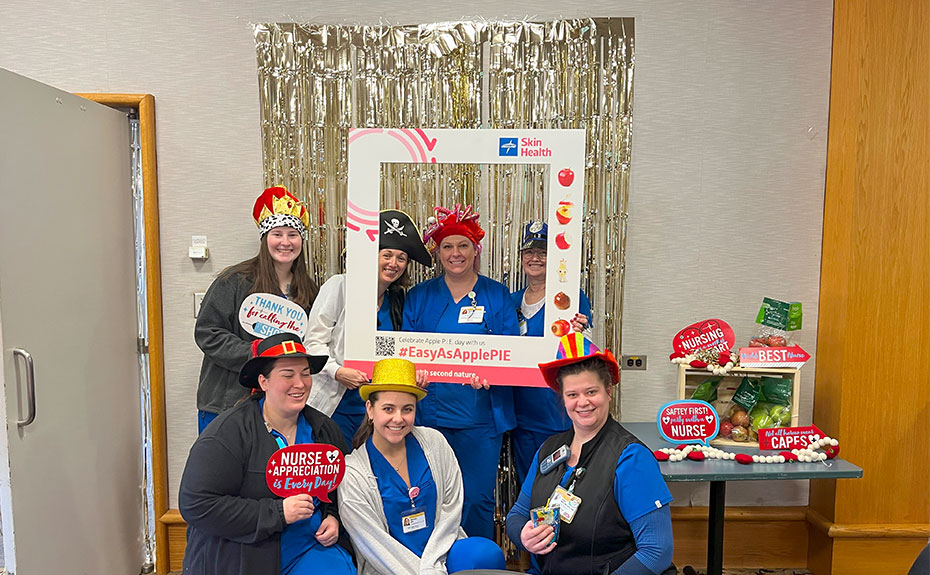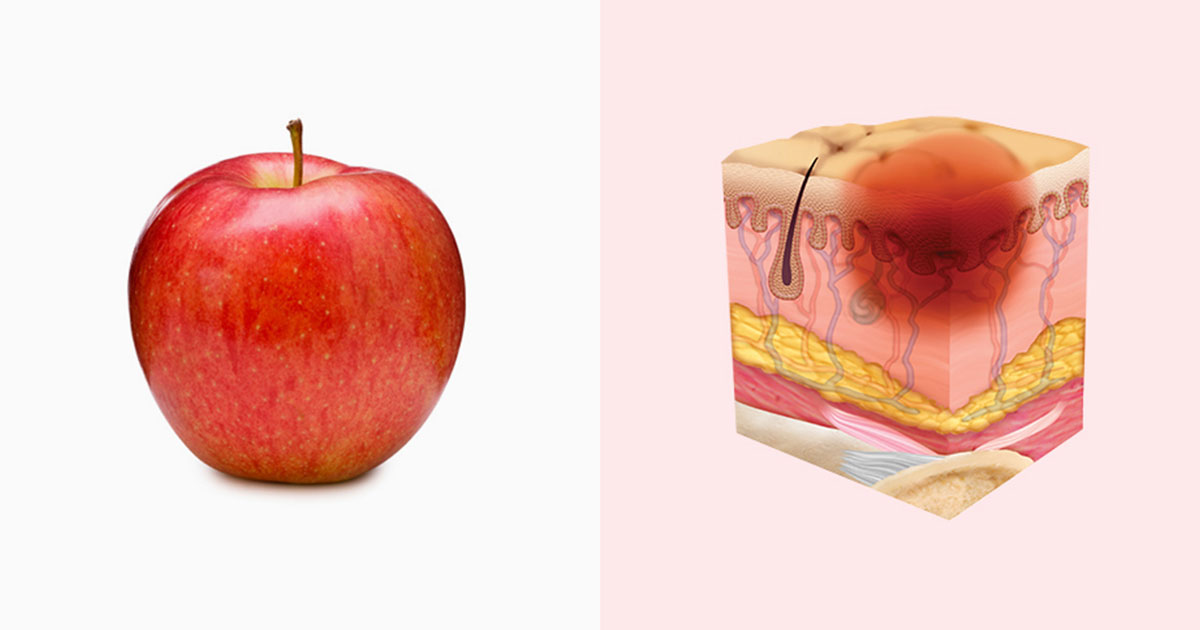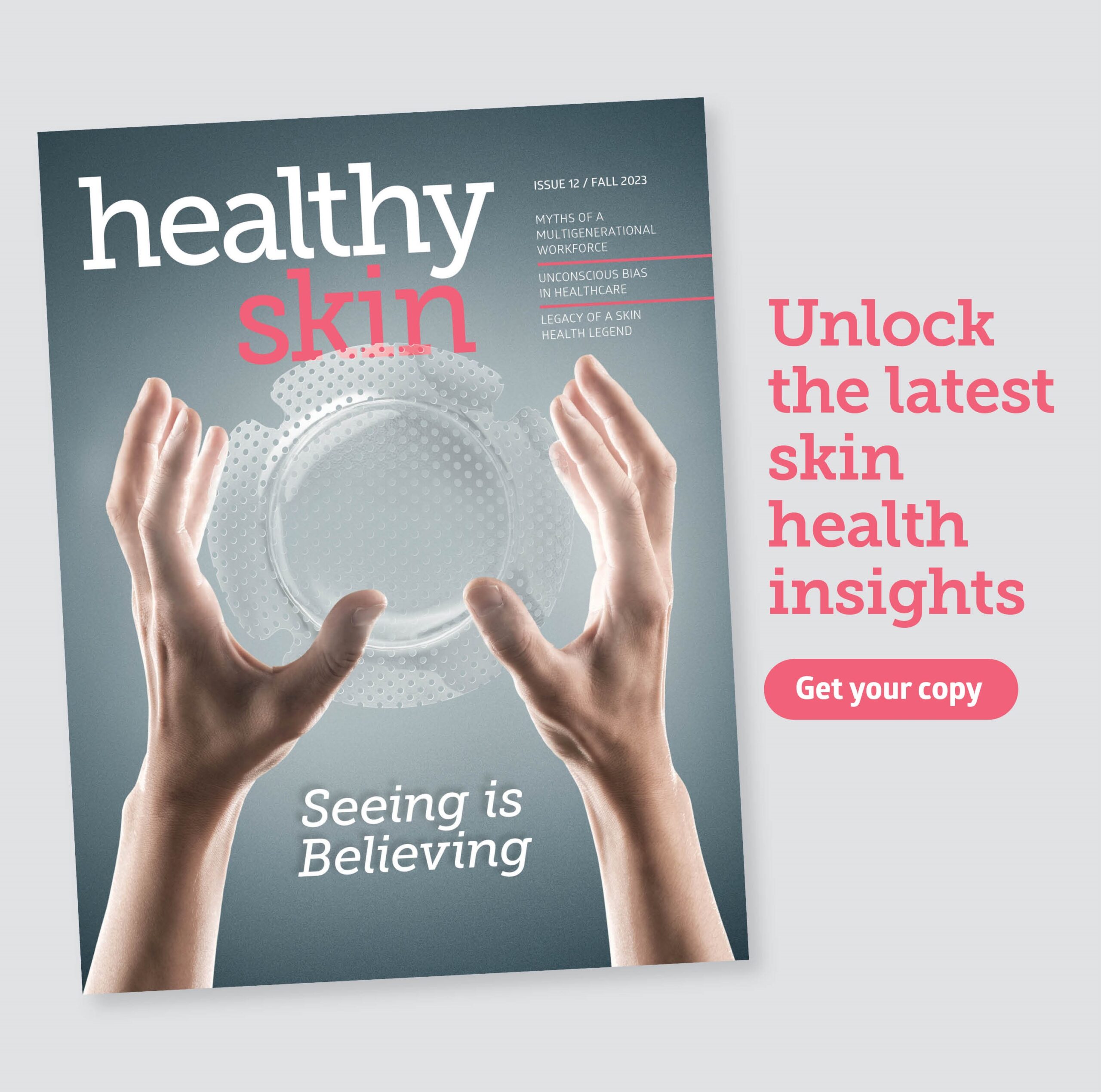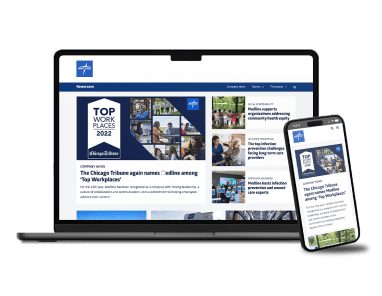Helping hospitals prioritize preventive wound care

By Medline Newsroom Staff | May 18, 2023
Each year, more than 2.5 million people in the U.S. develop pressure injuries – painful skin lesions that can increase a patient’s risk for infection and prolonged care, according to the Agency for Healthcare Research and Quality. And while most pressure injuries are preventable, ongoing staff shortages may disrupt procedures and limit time for preventive wound care.
To help reinforce and reset skin health protocols and priorities, Medline’s Acute Care team visited 30 hospitals throughout the U.S. during March and April to demonstrate the Apple P.I.E. (Pressure Injury Explanation) educational concept that uses an apple — from unblemished to completely eaten — to demonstrate the four stages of a pressure injury.
Patricia Turner, RN, BSN, CWS, CWOCN, Medline director of clinical services, is the creator of the patented tool. In March, her team visited Atrium Health Wake Forest Baptist in Winston-Salem, North Carolina to share the concept with 10 wound, ostomy and continence (WOC) nurses.
“We need to keep our minds fresh and stay on top of the game in terms of assessment and understanding the difference between each stage.”
Sharon Pettiford
Director of Nursing, Atrium Health Wake Forest Baptist
“Pressure injury staging is difficult whether you’re an experienced nurse or a new grad,” said Sharon Pettiford, Atrium Health Wake Forest Baptist director of nursing. “There’s so much to learn about it, and you may not see a pressure injury every day. If you don’t use it, you lose it. We need to keep our minds fresh and stay on top of the game in terms of assessment and understanding the difference between each stage.’”
For example, she said it’s important to reinforce that pressure injuries don’t always occur in the “sacral area. Pressure injuries can happen anywhere.”
“Frontline staff nurses are stretched more than ever, yet patient condition assessments remain consistently important,” said Turner. “When it comes to pressure injuries, accurate staging is key to identifying the right treatment and intervention.”
A ‘morale boost’ for busy staff
In-person demonstrations also provide a “morale boost” for busy staff, especially newer nurses, said Pettiford.
“The atmosphere for learning is more exciting when you have lots of people around with the same interests,” she said, adding that it’s rewarding to bring new knowledge “back to the bedside, delivering that level of patient care and feeling good about doing it.”
Julie Olson, a WOC nurse at St. Luke’s Health System in Boise, Idaho, who received Apple P.I.E. training in April, says “the education piece can be tricky. Last year, I was a course coordinator and would spend hours of my own time developing courses. Medline has done it already. Let’s not reinvent the wheel.”

Stage 1 of a pressure injury: Intact skin with a localized area non-blanchable erythema
“We work with Medline due to the fact that you develop products for our patients,” said Rich Robinson, St. Luke’s hyperbaric medicine supervisor, “and you work with us to deliver better patient care.”
Advancing skin health education
In addition to Apple P.I.E. trainings, Medline offers an array of in-person and virtual skin health education programs, including:
- Expert-led webinars designed for beginner to intermediate clinicians
- More than 50 skin and wound care courses through Medline University
- Support and education tools – downloadable clinical education tools that caregivers can share with their teams
For the last three years, Medline also has conducted on-site skin health assessments at hundreds of healthcare facilities, helping clinicians to evaluate skin health protocols and products, and develop training strategies to standardize protocols and improve care. A 2021 Skin Health Discovery Assessment survey of participating providers found that 38% of clinicians had not received training on pressure injury staging, and 75% were interested in more training.
Finally, to stay on top of the challenges facing WOC nurses, Medline looks to its Skin Health Advisory Board. The Board, made up of WOCs, meets annually and provides a lens into staffing, education, decision making, technology and quality improvement issues impacting hospitals and clinicians throughout the U.S.
“I think we certainly look to you as a resource,” said Pettiford of Medline. “It’s exciting for us to learn what you can do to help us, and then we work as a team to prevent pressure injuries and provide better patient care.”
Learn more about Medline Skin Health education and training programs.
Medline Newsroom Staff
Medline Newsroom Staff
Medline's newsroom staff researches and reports on the latest news and trends in healthcare.

